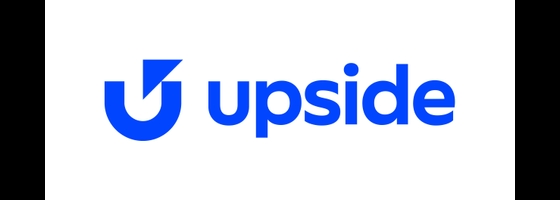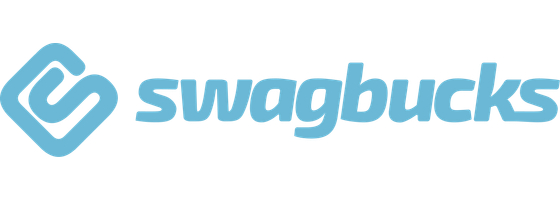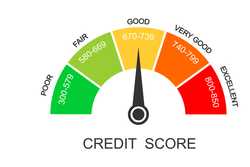- No specified minimum cash-out requirement.
- Apps are highly rated.
- More gas stations and convenience stores on its list than many competitors.
Best Cash Back Apps 2025

Our evaluations and opinions are not influenced by our advertising relationships, but we may earn a commission from our partners’ links. This content is created by TIME Stamped, under TIME’s direction and produced in accordance with TIME’s editorial guidelines and overseen by TIME’s editorial staff. Learn more about it.
As the old saying goes, you have to spend money to make money—and of course, you have to spend money simply to live. Cash-back apps make it possible to do both at once: Using these platforms, shoppers earn incremental cash rewards on purchases ranging from groceries to clothing to filling the gas tank. Better yet, these programs are almost always free to users, since they earn their money via commissions from the retailers they partner with. Here are the best cash apps of 2024 to suit a variety of spending habits.
Although cash-back rewards at gas stations are Upside primary focus, users can also earn rewards at restaurants, grocery stores, and more. And retailers aren’t limited to big box names and franchises: Local mom-and-pops can also be found on Upside’s map of nearby offers, with some cash back offers ranging as high as 20% or more.
Upside offers a handy tool on its front page that can help you estimate how much you stand to earn in cash-back rewards depending on what you tend to spend on a monthly basis in the categories of gas stations, restaurants, and grocery stores. If you spend between $150 to $200 on gas each month (J.D. Power’s estimate for the average American), $300 on restaurants (the average per U.S. Bureau of Labor Statistics data), and $600 on groceries (what a thrifty adult couple might spend per the U.S. Department of Agriculture), you could easily achieve $25 in rewards.
A well-known and storied player in the cash-back rewards game—the company first launched in 2008—Swagbucks offers a cash-back online shopping portal and coupon codes as well as in-store cash-back reward options. It also offers more active opportunities to earn rewards than many of its competitors.
For example, Swagbucks users can play online games, download the company’s Daily Trivia app, watch and create short videos, and share their opinions with marketers via online surveys—all while earning cash-back rewards for their efforts.
As far as its cash-back shopping function, Swagbucks offers opportunities to get cash back on unique items like prescriptions and even subscriptions—both subscription boxes, like FreshDirect, and subscription services, like Roku. And, of course, its deals also include a suite of popular brands of clothing, accessories, home goods, and retailers including Amazon, Target, and Walmart.
More options mean the website is busier, and multiple apps can cause confusion.
With more than 3,500 stores to choose from, Rakuten’s online shopping portal allows users to save big on everything from a new pair of Jordans to a tour of Machu Picchu. You can also earn cash back on less-exciting purchases, like accounting software and cat food. While there are more eligible online retailers than in-store options to choose from, both are available. Discounts are scored via a combination of coupons and straightforward cash-back offers.
Rakuten maintains that members have earned more than $2 billion in cash-back rewards through its platform to date. New members get an additional 10% cash back for the first seven days after they sign up. Rewards are available via check or PayPal rather than gift cards that lock your money into a specific retailer.
Ibotta’s app is like coupon clipping, except updated for the 21st century. It offers users the opportunity to earn cash-back on items they were already going to purchase. You simply go to the grocery store, look for Ibotta deals for items on your list, purchase them, snap a quick picture of your receipt, and upload it to the app to earn rebate rewards.
These days, the app offers an impressive slate of online shopping options, too, with cash-back earning opportunities up to 30% when you buy through the Ibotta portal. However, at $20, Ibotta has a higher-than-average minimum reward requirement to cash out. (Good thing you probably buy items it offers deals for, like bananas, all the time.)
Another receipt-snapping app, Fetch Rewards offers you personalized cash-back deals based on the receipts you upload, with deals on more than 500 brands available. Popular examples of grocery and household deals include Ben & Jerry’s, Cheerios, Colgate, Cottonelle, Dove, Hellman’s, and Huggies—along with beer, wine, and spirit brands like Guiness, Keystone Light, Beefeater, Jameson, Clos du Bois, and Dark Horse.
Fetch can also help you earn rewards on over-the-counter medications and supplements like Claritin, Aleve, and Flintstones Vitamins. And its range of popular restaurants and fast-food joints—including Popeye’s, Subway, Panera Bread and dozens more—mean Fetch Rewards can keep you eating and drinking well, while well rewarded.
First cash-out requires earning $10 worth of rewards, though the minimum drops to $3 thereafter.
| Cash-back app | Best for | Minimum reward to cash out | Google Play rating | Apple App Store rating |
|---|---|---|---|---|
Upside | Frequent drivers | None, but a $1 fee may apply for cash-outs under $10 (bank transfer) or $15 (PayPal). Gift card rewards may also have minimum thresholds | 4.7 stars | 4.8 stars |
Swagbucks | Games and surveys | $3 | 4.2 stars | 4.4 stars |
Rakuten | Luxury shopping | $5.01 | 3.7 stars | 4.8 stars |
Ibotta | Grocery and household shopping | $20 | 4.5 stars | 4.8 stars |
Fetch Rewards | Restaurants and spirits | $10 to start; $3 thereafter | 4.6 stars | 4.8 stars |
TIME reviewed 15 of the most popular cash-back rewards apps and programs, narrowing it down to what we see as the five best. We analyzed an array of data points including available deals, breadth of participating retailers and brands, ease of use, app store ratings, minimum cash reward withdrawal amounts, associated fees, and more. This data was used to ascertain which apps were best suited to specific demographics and consumer needs, which we’ve listed above.
While just about any cash-back app can help you earn rewards you otherwise wouldn’t have, they can take a little bit of time and effort to use—so it’s worth shopping around for the right one. While you may be able to stack multiple offers on top of one another by utilizing a few of these apps at once, doing so might mean taking many receipt pictures, a practice that might grow tedious for even the thriftiest shopper.
Each cash-back app partners with specific brands and stores—and types of brands and stores. Most advertise deals before sign-up. So, for example, if you see a cash-back app that prominently displays the name of a place where you frequently shop or a brand you’re loyal to, it may be more worthwhile to download than another app. And vice-versa: If you live in a walkable neighborhood and rarely or never drive, a gas-station-focused cash-back app like Upside might not be the best first choice for you.
Along with what you’re buying, it’s also important to think about how you’re buying when considering a cash-back app. Some apps are more in-store focused, while others primarily offer cash back through online shopping portals. If you tend to favor one method over the other, go with an app that matches.
Sometimes it’s as simple as navigating to the website where you already headed through the cash-back app’s portal. In other cases, earning rewards will require taking multiple photos of lengthy receipts or participating in more active experiences like taking surveys. If you’re looking for simplicity, choosing a cash-back reward app that simply offers a shopping portal or automatically adds coupon codes may be your best bet.
While cash-back apps can help you earn rewards simply for shopping, there are other ways to achieve this goal. Some methods are far faster than the incremental gains cash-back rewards apps tend to offer.
Many credit cards offer cash-back as a reward incentive. Some offer higher cash-back percentages of 2% or even 5% in specific categories like dining, groceries, or travel. Earning 5% back on your entire grocery bill every single time you shop is likely to yield far greater results than a few cents or even dollars here and there through a cash-back app can.
But proceed with caution: If you carry a revolving balance, the interest you’ll pay is likely to eclipse any rewards you’ve stacked up. (Even without this dynamic, it’s always best practice to pay off your credit card in full and on time, each and every month).
While rarer than cash-back credit cards, cash-back debit cards do exist. They offer a similar rewards-earning opportunity without tempting cardholders toward the slippery slope of credit card debt. Unfortunately, cash-back rewards rates tend to be lower for debit cards, and there may be fewer other associated perks. Still, any cash-back reward at all for the simple task of buying what you already were going to is a good reward.
Cash-back apps offer small, incremental cash rewards to users based on their purchases and, in some cases, other behaviors and activities such as participating in online surveys. Cash rewards are usually only a small percentage of the amount you’ve spent, and need to be saved up over time to be substantial enough to withdraw and use. Still, they offer a way to earn back money simply by spending it, usually at no cost to you.
So how do cash-back apps make money? Stores and brands pay the companies a commission for the increased sales traffic the deals bring their way. The companies offer cash back out of their earnings. They may also sell or share your data to advertisers.
There are quite a few different cash-back apps on the market. Although they all work very similarly, the mechanism by which users earn cash back do vary. For example, some apps work primarily through a receipt-snapping function: You shop for items in-store and take photographs of your receipt as proof of purchase, which is then uploaded and matched with cash-back deals. Other apps offer an online shopping portal that helps you earn discounts simply for clicking through the app before navigating to the website where you’re making the purchase. And some offer a mix of both—and more.
Although a few cents here and there might not be much, cash-back rewards earned through cash-back apps can add up over time to become substantial savings. This is especially the case if you’re primarily getting deals on items you already need to buy, like groceries and gas.
The information presented here is created by TIME Stamped and overseen by TIME editorial staff. To learn more, see our About Us page.








